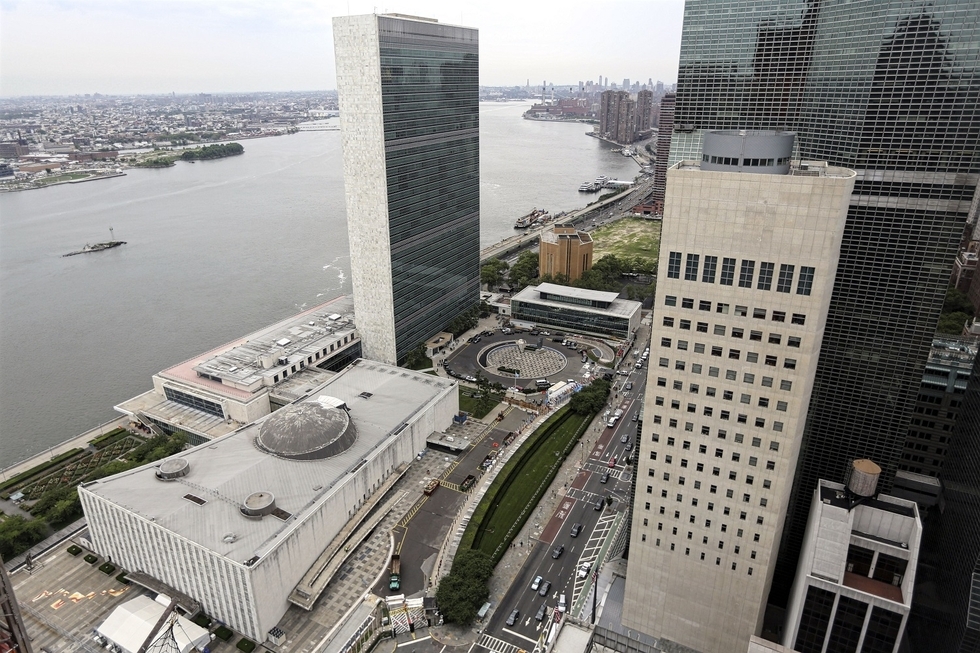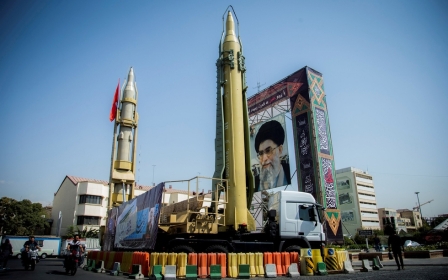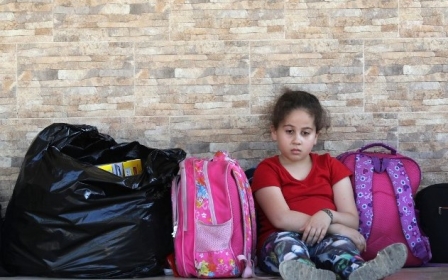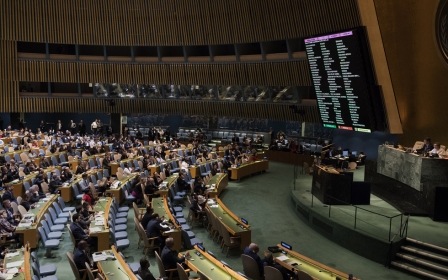The Middle East at the UN: Who's talking when at the General Assembly debate

The 73rd session of the United Nations General Assembly (UNGA) is underway, with the general debate beginning on Tuesday.
No gathering in world politics attracts more heavyweights during its first week.
National leaders converge on the organisation’s HQ, which overlooks New York’s East River, to meet with fellow heads of state, hold talks on the sidelines and address the world.
What is the UN General Assembly?
The UN General Assembly is a core component of the UN with manifold duties, including overseeing voting in new members, choosing non-permanent members of the UN Security Council and playing a part in electing the UN secretary general.
It also gives observer status to non-member states and groups including Palestine and the European Union, whose speakers are allowed to address the assembly.
What's happening this week?
The UNGA debate, which opens its 73rd session, has the title "Making the United Nations relevant to all people: global leadership and shared responsibilities for peaceful, equitable and sustainable societies".
But don't expect world leaders to stick to the theme: most will promote whatever international issue is top of the agenda for their country.
Nor will many speakers stick to the allotted 15-minute time slot: frequently they over-run, although none this year is likely to equal the performance of the late Cuban leader Fidel Castro, who clocked up an impressive four hours in September 1960.
What's the schedule?
Morning debating sessions run from 9am ET (that's four hours behind GMT) until 2.45pm. The afternoon session begins at 3pm and ends at 9pm. You can catch live coverage here. An archive of speeches so far this week is being updated on the United Nations website.
World leaders have complicated lives: the running order below may change, especially if, as mentioned above, speakers inevitably over-run. The position in brackets refers to where in the order of each session the the speaker is due to take to the podium.
Tuesday 25 September
Full coverage of speeches, including video.
Morning (9am ET - 2.45pm ET)
- President Donald Trump, United States (4th speaker)
- President Recep Tayyip Erdogan, Turkey (6th)
- President Emmanuel Macron, France (9th)
- King Abdullah II ibn Al Hussein, Jordan (12th)
- Sheikh Tamim bin Hamad al-Thani, Emir, Qatar (13th)
- President Hassan Rouhani, Iran (14th)
Afternoon (3pm ET - 9pm ET)
- President Abdel Fattah al-Sisi, Egypt (3rd)
- Prime Minister Saad-Eddine el-Othmani, Morocco (19th)
Wednesday 26 September
Full coverage of speeches, including video.
Morning (9am ET - 2.45pm ET)
- President Michel Aoun, Lebanon (5th)
- President Abdrabuh Mansour Hadi Mansour, Yemen (7th)
- Prime minister Theresa May, UK (18th)
Afternoon (3pm ET - 9pm ET)
- Prime Minister Jaber Al-Mubarak Al-Hamad Al-Sabah, Kuwait (20th)
Thursday 27 September
Full coverage of speeches, including video.
Morning (9am ET - 2.45pm ET)
- President Nicos Anastasiades, Cyprus (3rd)
- President Mahmoud Abbas, State of Palestine (9th)
- President Donald Tusk, EU (10th)
- Prime minister Benjamin Netanyahu, Israel (12th)
Friday 28 September
Full coverage of speeches, including video.
Morning (9am ET - 2.45pm ET)
- First Vice President Taban Deng Gai, South Sudan (3rd)
- Speaker TBA, China (16th)
- Speaker TBA,Russia (17th)
- Speaker TBA,Tunisia (19th)
- Speaker TBA, Iraq (20th)
Afternoon (3pm ET - 9pm ET)
- Saudi Arabia (10th)
- Libya (20th)
Saturday 29 September
Morning (9am ET - 2.45pm ET)
- UAE (1st)
- Oman (4th)
- Syria (6th)
- Bahrain (15th)
Afternoon (3pm ET - 9pm ET)
- Algeria (5th)
Monday 1 October
Morning (9am ET - 2.45pm ET)
- Sudan (3rd)
Stay informed with MEE's newsletters
Sign up to get the latest alerts, insights and analysis, starting with Turkey Unpacked
Middle East Eye delivers independent and unrivalled coverage and analysis of the Middle East, North Africa and beyond. To learn more about republishing this content and the associated fees, please fill out this form. More about MEE can be found here.




